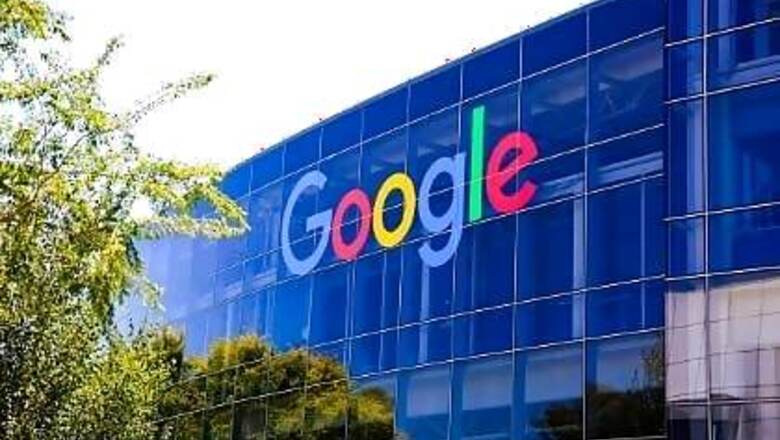
views
To find, report and deliver news to readers online, digital news companies in India are required to spend a considerable amount of money. There’s a lot of human resource involved along with investments on tech platforms in the online content creation and news business. And there’s no denying that online advertisements are the bread and butter for any media firm as the main product– i.e. news or content– is mostly offered for free.
Now, you must be thinking that it’s a fairly simple business model where news is delivered online for free, readers click on it to read them and hopefully interact with the advertisements as well on the web page. In turn, depending on the popularity of the news website, advertisers pay money to media firms for their ads to gain visibility. This is how online news used to operate a decade back or at least how it was expected to function.
But when we talk about advertisements, how can we ignore the world’s largest online advertisement company— Google. Of course, it’s also one of the largest tech companies but its bread and butter is also advertisements, just like news companies.
Also read: Digital News Companies Accuse Google Of Abusing Dominant Search Engine Position; CCI Orders Probe
If you come to think of it, all the bright minds that Google hires to create newer technologies primarily focus on holding on to people’s attention or ‘screen time’ to ultimately make them watch more ads. To add to it, these days it’s way more than just ads, it’s about striving to guess what’s going on in your mind and also predicting and eliminating uncertainties.
Google Spends Nothing On News Just Like Uber Owns No Cabs
Google must have foreseen our reality decades back while creating Google Search. Google’s funding team members believed that there will be a time when people will search for everything on the internet on Google Search. Be it movies, games, porn, food, homes, everything including news. And with smartphones, Google literally owns the internet, at least for the general public.
Google entered the news business by simply offering to help digital news companies to deliver news effectively online. It’s like if people searched for their favourite recipes online back in the early 2000s, they must search for news as well at some point of time in future. And that’s how Google News started: without hiring even one reporter or desk person or buying a camera. All it had to do was to figure out an algorithm through which it can control which news or news websites to present to users on the first page of search or on the ‘Top News’ carousel of Google.
And the fight for online traffic began. Every online media company wanted to ‘rank’ their news stories on the hallowed top spot of Google News and Google Search for every possible keyword. The rules were set: if a story doesn’t rank on Google and generate numbers it can be considered as ‘useless’ no matter the efforts of the reporter or the investment of the news company.
Be it ‘Top 5 best smartphones to buy’ or ‘murder of a politician’, all stories suddenly started to be measured by the same metric: ‘Google numbers’.
Soon, Google also started to sell Analytics to help media companies accurately measure online traffic. A new job role was created: SEO for news. The key to win the online news race changed to hire better and bigger SEO teams.
Now, with Google entering the News business the stakeholders of media companies had already predicted whatever is written above in the past. But what they may not have comprehended in the past is that Google will move so quickly to essentially try to become the ‘god father’ of the online news business.
How so? Well, Google is now deciding how much advertising money do online media companies receive. In fact, Digital News Publishers Association (DNPA)–an organisation of the digital arms of leading media companies in India– claim that “the website publishers only receive 51% of the advertisement spend by the advertisers.”
“Google is the major stakeholder in the digital advertising space, and it unilaterally decides the amount to be paid to the publishers for the content created by them, as well as the terms on which the aforesaid amounts have to be paid. As an illustration, the Informant (DNPA) alleges that Google has unilaterally decided not to pay the publishers of news for the snippets used by them in search,” the news body said in its complaint to the Competition Commission of India (CCI).
Doesn’t this sound similar to Uber? A large taxi company that owns no taxis but decides the fate of every taxi driver.
From ‘Google Will Help You Online’ To ‘Google Is Controlling Us’
With both advertisement money and online traffic under Google’s control, it is now apparent as to how Google is helping itself rather than just the cause of delivering news effectively. The DNPA has now gone to CCI describing how Google is abusing its monopoly in the online search engine space.
Fair trade regulator CCI has also announced a probe against Google for its alleged abuse of dominant position. “In view of the foregoing analysis, in sum, the Commission is of prima facie view that Google has violated provisions of Section 4 of the Act,” according to the order of the Competition Commission of India (CCI).
DNPA has filed a case under under Section 19(1)(a) of the Competition Act, 2002 (‘Act’) against Alphabet Inc., Google LLC, Google India Private Limited and Google Ireland Limited alleging violation of Section 4 of the Act.
“The majority of the traffic on news websites comes from online search engines (more than 50%), wherein Google is claimed to be the most dominant search engine. Based on the same, the Informant has averred that more than 50% of the total traffic on the news websites is routed through Google and, being the dominant player in this field, Google, by way of its algorithms, determines which news website gets discovered via search. It has been further averred that it is the content produced by news media companies that create the context for the audience to interface with the advertiser; however, online search engines (Google) end up leveraging the revenue/returns much more than publishers,” said the news body.
“Google not only has a monopolistic position in search in India, it also has a very strong position in advertising intermediation and controls/retains the major share at each level,” it alleged.
Google AMP, Zero-click Searches And No Payment For Snippets
DNPA claimed that there has been a surge in zero-click searches from 50% in June 2019 to 65% between January and December 2020.
“Zero-click searches have been stated to mean that user queries have been resolved on the results page itself, without the user going on to the target website. As such, by displaying its own advertisements, Google is stated to extract value from zero-click searches, while publishers lose out on traffic,” it explained.
Talking about AMP or Accelerated Mobile Pages, the news body said that “Google gives publishers no choice but to implement Accelerated Mobile Pages (AMP) standard or lose critical placement in mobile search, resulting in reduced traffic.”
“To this end, publishers were forced to build mirror-image websites using this format, with Google caching all articles in the AMP format and serving the content directly to mobile users. It has been further averred that, for AMP articles, Google restricts paywall options unless publishers rebuild their paywall options and their meters for AMP. The only alternative to the AMP system is for publishers to subscribe with Google, which benefits Google, to the detriment of the publishers,” it added.
It’s claimed that Google gives a small portion of revenue generated from the advertisements on the websites/links in an arbitrary manner, without disclosing any basis for calculation of such revenue. Not just that, Google doesn’t pay for the snippets of the news content created by media companies which is displayed by Google in search engine result pages.
Technically, whatever content Google showcases on its News tab or Search pages is not owned by it at all.
Read all the Latest Tech News here



















Comments
0 comment